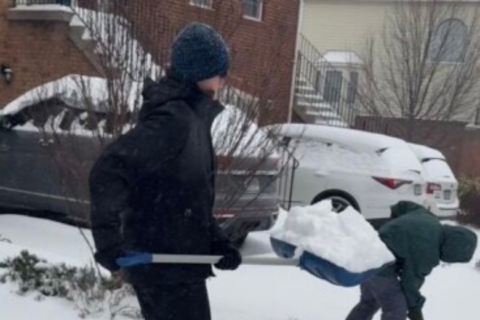LEESBURG, Va.– Heroin overdose deaths are a growing problem, and parents around the region are being urged to talk with their teens about it.
“We’ve had the misfortune of having four overdose deaths since January of this year,” Loudoun County Sheriff Mike Chapman said Friday at a meeting aimed at teens and their parents.
The meeting was held at the traveling Drug Enforcement Administration museum exhibit “Drugs: Costs & Consequences,” which opened January in Leesburg and will remain open through September.
Loudoun County Public Schools students are visiting the exhibit as part of their curriculum.
Many people who become hooked on prescription painkillers will eventually turn to heroin because it’s much cheaper.
Scott Hoernke, assistant special agent in charge at the Washington, D.C. division of the DEA, says that as heroin becomes more potent, many users are dying with a needle still stuck in their arms.
“We’re seeing more and more of that these days. Not only in Loudoun County but throughout the United States, throughout the Mid-Atlantic region,” Hoernke says.
Hoernke says law enforcement alone can only do so much to stop the trend.
“We rely on you as the parents, as the family members, to continue and reinforce this message to your children and to other family members.”
He recommended that families sit down together and watch a documentary called “Chasing the Dragon,” which is available on the DEA’s website.
In a pilot program, sheriff’s deputies in the west end of Loudoun County have been supplied with Naloxone, which can reverse the effects of a heroin overdose.
A few weeks ago, two deputies saved a life with Naloxone, and now Chapman says he’s hoping to expand the program throughout his county.
Some people at the meeting were upset that another pilot program in the county, a drug court, was discontinued in 2012.
At the meeting, county supervisors Tony Buffington Jr. and Suzanne Volpe said they would consider bringing back the drug court or a comparable program if it was determined it would be feasible and actually help the community.








